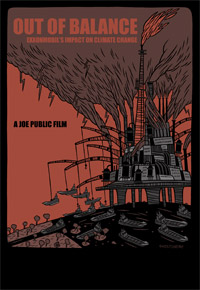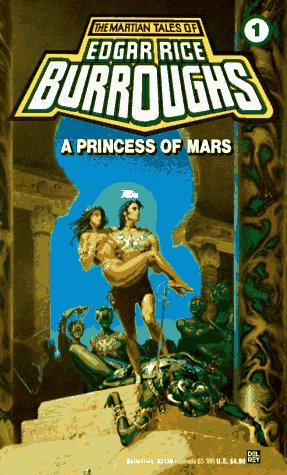 This latest entry in my Spout Mavens reviews is probably the one I was looking forward to most, which makes the length it took me to view it a bit puzzling. Out of Balance plays into one of my pet obsessions; global warming and the corporations at the heart of the problem. Leaning more towards the left side of the political spectrum, environmental concerns and a distrust of large corporations is almost hard-wired into my thinking. And here the target is Exxon, the largest oil company, and, as the film argues, the largest CORPORATION in the entire world(I have no idea if that's true, and the film offers no quotable sources, but it sounds like it could be true). The only way this could be more up my alley was if the corporation being targeted was Wal-Mart.
This latest entry in my Spout Mavens reviews is probably the one I was looking forward to most, which makes the length it took me to view it a bit puzzling. Out of Balance plays into one of my pet obsessions; global warming and the corporations at the heart of the problem. Leaning more towards the left side of the political spectrum, environmental concerns and a distrust of large corporations is almost hard-wired into my thinking. And here the target is Exxon, the largest oil company, and, as the film argues, the largest CORPORATION in the entire world(I have no idea if that's true, and the film offers no quotable sources, but it sounds like it could be true). The only way this could be more up my alley was if the corporation being targeted was Wal-Mart. Living in Alaska I may be quicker to distrust Exxon than most. The 1989 oil spill in Prince William Sound was a huge disaster that we're still reeling from today. It wasn't just the largest oil spill in history, but it was in an area where people made almost their entire living on the water, from tourism or fishing, and both were, essentially, ruined for years to come. I remember two trips to Homer to study the beaches, both during school field trips. One trip was in 1988, the other was in 1990, and the difference, even in an area not directly in the path of the oil spill, was noticeable. The year after the oil spill the beaches in Homer were not devastated, but they were a little more empty, with not quite so many fish, crabs or octopus, and the sand was noticeably looser, and you would sink in above your ankles where the year before you would stand comfortably on the hardpacked sand. To me the Exxon oil spill is not the firsthand disaster it was to the people who lived in the Prince William Sound area, but neither is it the empty headline of some faraway tragedy that it must have been for people living in, say Missouri. The continuing problems are increased by Exxon's refusal to pay the $5 billion in punitive damages they were court-ordered to pay, money that would help cover cleanup, health care for those with problems stemming from the spill, and the loss of income to many families who depended on fishing as a way of life. Just a couple weeks ago there were a new string of news stories detailing Exxon's continuing, and partially successful, attempts to get the Supreme Court to lower the amount they're required to pay. You don't need to try and convince me that Exxon is an immoral, harmful corporation.
Tom Jackson, the director and our guide through a list of Exxon's atrocities, seems like a well balanced, likable enough guy. That actually is important, because many of these anti-establishment style documentaries come off as reactionary, pretentious, and unlikable. Tom Jackson, however, puts himself right alongside the audience as he asks questions and learns the truth with us. He admits that global warming was something he didn't want to believe, in part, because he loves to just get in his car and drive. This everyman persona works slightly better than Michael Moore's attempts; his films may be more successful, both message-wise and monetarily, but he should stop trying to play the ignorant American constantly amazed by the things he puts in his movies.
The only real complaint to this film is it's brevity. At barely over an hour long, the film doesn't delve too deeply into specifics. There are plenty of talking heads, scientists, journalists and the like, but they focus more on the problem of global warming as a whole than Exxon's contributions. In fact, there's not really a lot here that the people watching this film wouldn't know already. Or maybe that's me, and people outside of Alaska aren't as aware of Exxon's misdeeds, but I couldn't help feeling that this film was preaching to the choir. It's unlikely that anyone not yet aware of global warming would pick this film up at their local video store, while anyone who would be interested in this sort of thing probably already knows this already. Still, Mr. Jackson is a decent guy, and the decision to film his own personal journey to find out why Exxon was so evil wasn't a bad one. The movie's heart is in the right place, and this is definitely a message that needs to be said, but there's not much here to recommend it over the other films of it's ilk.

